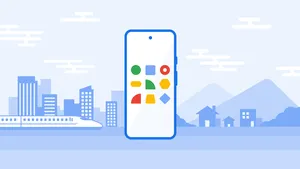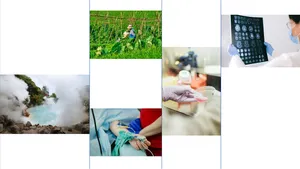How we’re fighting misinformation across Asia Pacific

Having the tools to find quality information and spot misinformation is always important— but it's a necessity in the moments that matter most, like in times of crisis or when you're looking for sensitive information like health or financial advice. With International Fact-Checking Day coming up, we wanted to acknowledge these vulnerable moments and share a few ways we’re making it easier for people in Asia Pacific to evaluate information online.
Soon, you’ll begin seeing three dots next to most results on Google Search. Tap the three dots to learn more about the result, understand where the information is coming from, and see how our systems determined it would be helpful for your query. This feature is now available in all the main languages of Asia Pacific, including Japanese, Korean, Indonesian, Vietnamese, Malay, Urdu, both Simplified and Traditional Chinese, and a number of Indian languages. With this additional context, people can make a more informed decision about the sites they may want to visit, and what results will be most useful to them.
On YouTube, we’re expanding information panels giving topical context to Singapore, Pakistan, Papua New Guinea and New Zealand. Now, when people search videos on certain topics prone to misinformation (such as climate change), they’ll see an information panel at the top of their search results or under a video they’re watching which includes links to additional info and context from authoritative third-party sources.
These features are not only key to helping people get more context as they search and watch, but also to ensure that access to quality information is always available. That’s why we’re also supporting fact-checking networks across all countries in the region by providing misinformation training for journalists. Over the past several years, we’ve trained more than 177,500 journalists in 17 countries and regions across Asia Pacific.
Building on our work to address misinformation, Google and YouTube announced last November a $13.2 million grant to the International Fact-Checking Network at the Poynter Institute to launch a new Global Fact Check Fund. The Fund will support IFCN’s network of 135 fact-checking organizations from 65 countries, covering over 80 languages. This is Google and YouTube’s single largest grant in fact-checking.
Across Asia Pacific, it’s been incredible to see the impact of initiatives like CekFakta, a collaborative fact-checking and verification project. Last December, we announced that we’re committing $1.2 million to support CekFakta and Indonesian journalists, fact-checkers and citizens to fight misinformation ahead of the 2024 election.
Around the region, our work continues:
In India, we support Factshala, a collaborative media literacy effort led by a network of more than 250 journalists, media educators, NGOs, fact-checkers and 60+ community radio stations that run locally tailored programs in more than 15 languages. This year, FactShala is launching an incubator program to experiment with new media literacy formats and will run a campaign for youth and first time voters.
Ahead of local elections and important votes, we’ve offered workshops on verification and fact-checking such as this one, in Thailand. We’ve also offered sessions like this in Australia, Bangladesh, India, Indonesia, New Zealand, Pakistan and Taiwan.
Our philanthropic arm, Google.org, has supported the Safer Internet Association with a $1.5M grant to establish the Japan Fact-Check Center, which conducts research on trends in Japan's online space and helps the Japanese public to be more media literate through misinformation campaigns and training.
Through Google.org, Google’s philanthropic arm, we supported nonprofits such as the Taiwan FactCheck Centre, which trained more than 10,000 older persons in media literacy.
Through Google.org, Google’s philanthropic arm, ASEAN Foundation (and its implementing partners) has equipped over 98,000 underserved youth, elderly persons and women, such as health trainer Ecep Setyadi (pictured), with online safety and media literacy skills via the ASEAN Digital Literacy Programme.
We also want to ensure that people have the right skills to analyze online information through media literacy programs. On YouTube, we’ve been running an educational program called Hit Pause to encourage users to think critically about information in several Asia Pacific countries including India, Indonesia, Australia and New Zealand.
Because research and experimentation are key to fighting misinformation, we’re also looking forward to our team at Jigsaw bringing their work around ‘prebunking’ to APAC later this year. Pre-bunking, a new form of preemptive resilience to misinformation that helps people spot and refute misleading content online information, has already shown strong results in Europe.
Surfacing the facts and helping audiences get more context on information they find online are part of our mission to make the world’s information accessible and useful. We’re grateful for our partners and the work we do together to make every user in Asia feel safer online.






